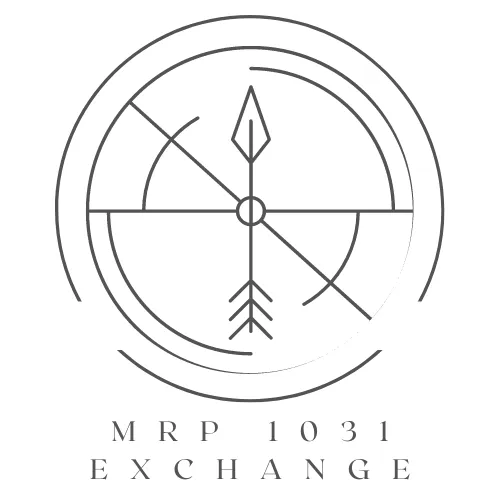
MRP 1031 EXCHANGE SERVICES
A 1031 Exchange is a tax deferral tool that allows the seller of qualifying real property to defer taxes on their transaction including Capital Gains, Depreciation Recapture, and Net Investment Income Tax so long as the proceeds from the sale are used to acquire other qualifying, real property. Multiple requirements must be adhered to for a valid 1031 Exchange.
Through MRP 1031 Exchange, we provide clients access to 1031 exchange services supported by Exchange Manager ProSM, the patented 1031 exchange workflow technology, and one of the nation’s leading Qualified Intermediaries.

BENEFITS OF WORKING WITH MRP 1031 EXCHANGE
In-House Coordination
Software Workflow
1031 Exchange Expertise
Security of Funds
THE PROCESS FOR A 1031 EXCHANGE
Enter into an exchange agreement with a Qualfied Intermediary (QI)
At closing, settlement agent will direct proceeds to QI to hold in exchange account
45 days to identify target replacement property and give written notice to QI
180 days to purchase a replacement property, the QI will send funds directly to the closing agent
Receive replacement property and complete exchange
1031 EXCHANGE SERVICES FAQ'S
What is a 1031 Exchange?
A 1031 Exchange is a strategy used by real estate investors to defer paying capital gains taxes when selling a property. Instead of paying taxes on the profit from a sale, an investor can use that money to purchase a new, similar property, called a “replacement property.” This process allows them to reinvest the potential tax amount into more real estate. The 1031 Exchange is particularly appealing because it helps investors grow their portfolio without the immediate burden of capital gains taxes, which can be as high as 35%. This strategy is ideal for those looking to continue investing in real estate rather than cashing out completely.
Am I eligible for a 1031 Exchange?
Section 1031 of the tax code allows U.S. taxpayers to defer taxes on the sale of real estate used for business or investment by reinvesting in a like-kind property. All U.S. taxpayers, including individuals, partnerships, LLCs, corporations, and trusts, are eligible for this exchange, regardless of citizenship. The same tax identity that sells the original property must also purchase the replacement property, though the title can be held through a "tax disregarded entity," like a single-member LLC or a trustee. Delaware Statutory Trusts (DSTs) can also be used in 1031 exchanges, allowing investors to acquire fractional interests in larger, investment-grade properties.
What is the timeframe for a 1031 Exchange?
You have 45 days after selling your relinquished property to identify your replacement property, using a clear legal description or physical address. This identification must be in writing, signed, dated, and submitted to your Qualified Intermediary (QI) within the 45-day window, with no extensions allowed. You then have 180 days to complete the purchase of your replacement property. This 180-day period is also strictly enforced, but may be shortened if your tax return is due before the end of the 180 days. In such cases, filing a tax extension is recommended.
What other rules apply to a 1031 Exchange?
During the 45-day identification period, taxpayers must follow one of three rules when selecting potential replacement properties for a 1031 exchange:
3-Property Rule: Up to three properties can be identified, regardless of their value, and at least one must be purchased for the exchange to be valid.
200% Rule: More than three properties can be identified, but their total value cannot exceed 200% of the fair market value of the relinquished property.
95% Rule: An unlimited number of properties can be identified, even if their total value exceeds 200% of the relinquished property, but the taxpayer must acquire at least 95% of the total fair market value of the identified properties.
What is a "Like Kind" Property?
One of the key benefits of a real estate exchange is that nearly all real property is considered “like-kind” to other real property. The term “like-kind” refers to the nature or character of the property, not its class or quality. As defined in the tax code, any type of real estate can be exchanged for another, whether improved or unimproved.
Some examples would include: an apartment complex exchanged for a cell tower easement; an office building for farm land; or a rental home for water rights. Generally speaking, the only real estate that does not qualify under a 1031 exchange is a vacation home and personal primary residency.
How much money do you have to reinvest?
In order to defer ALL capital gains and depreciation recapture taxes from the sale of the Relinquished Property the taxpayer must pay an equal or higher price for the Replacement Property than the Relinquished Property was sold. Should any debt or amount not be reinvested this portion, called boot, would be taxable.
Does it make sense for you to do a 1031 Exchange?
Every situation is unique. Let our team help you in making the decision if a 1031 Exchange is right for you. Contact us to set up a consultation discussion.
Call (469) 453-5383
Email:[email protected]
Site: www.meridianpartnersrealty.com
©2024 Copyright. All rights Reserved
Website Designed by Fabrizio Marketing LLC
